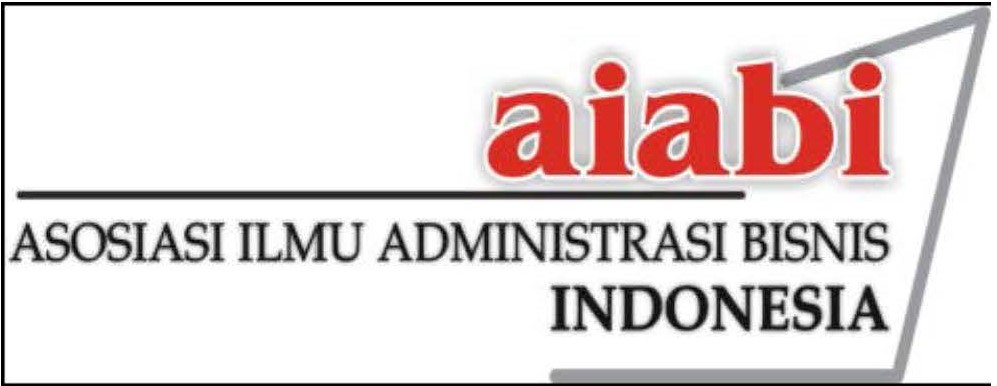KEWIRAUSAHAAN DAN GENDER: SEBUAH STUDI DARI PERSPEKTIF SOSIAL BUDAYA DAN PSIKOLOGI
Abstrak
This study aims to explore the driving factors and challenges associated with women entrepreneurship in Indonesia, specifically in East Java. This study examines these factors from the socio-cultural (including the possible role of religion) and psychology perspectives. Theoretical sampling and maximum variation sampling techniques are used to determine the research sample (participant / informant). A total of 25 female entrepreneurs who own micro, small and medium businesses/ MSMEs in East Java participated in this research. The results of this study show that family factors and religious beliefs possessed by informants greatly influence their decision to become an entrepreneur. Moreover, this study also shows that the determination, the courage to take risks, the ability to find opportunities, be innovative, believe in one's own abilities and persuasive abilities are several characters that are believed to be crucial as a provision to be an entrepreneur. In addition, the results of this study are in line with the Sociological Theory of Entrepreneurship, the Feminist Theory of Entrepreneurship, and the Psychological Theory of Entrepreneurship.
Penelitian ini bertujuan untuk mengeksplorasi faktor-faktor pendorong serta tantangan yang terkait dengan kewirausahaan wanita di Indonesia, khususnya di daerah Jawa Timur. Penelitian ini menelaah faktor-faktor tersebut dari perspektif sosial budaya (termasuk kemungkinan peran agama) dan psikologi. Teknik theoretical sampling dan maximum variation sampling dipergunakan untuk menetapkan sampel (partisipan/informan) penelitian. Sejumlah 25 orang wirausaha wanita pemilik usaha berskala mikro, kecil, dan menengah (UMKM) di daerah Jawa Timur dijadikan partisipan. Hasil penelitian ini menunjukkan bahwa faktor keluarga serta ajaran agama yang dimiliki oleh informan sangat mempengaruhi keputusannya untuk berwirausaha. Penelitian ini juga menunjukkan bahwa keteguhan sikap, berani mengambil resiko, kemampuan untuk membaca peluang, inovatif, percaya pada kemampuan diri sendiri serta kemampuan persuasif merupakan hal yang diyakini penting sebagai bekal yang harus dimiliki untuk menjadi seorang wirausaha. Hasil penelitian ini mendukung teori kewirausahaan Sociological, Feminist, dan Psychological.
Kata Kunci
Teks Lengkap:
PDFReferensi
Afrianty, T. W., Issa, T., & Burgess, J. (2015).
Work-based Religiosity Support in Indonesia, In Groschl, S., & Bendl, R. (Eds), Managing Religious Diversity in the Workplace: Examples from Around the World. England: Gower Publishing Limited.
Afrianty, T. W., Burgess, J., & Issa, T. (2015).
Family-friendly support programs and work family conflict among Indonesian higher education employees. Equality, Diversity and Inclusion, 34(8), 726–741.
Anggadwita, G., Luturlean, B., Ramadani, V. &
Ratten, V. (2017). Socio-cultural environments and emerging economy entrepreneurship: Women entrepreneurs in Indonesia. Journal of Entrepreneurship in Emerging Economies, Vol. 9 No. 1, pp. 85-96
Asia Foundation. (2013). Women Biz Owners in
Indonesia Defy Some Long-Entrenched Barriers: http://asiafoundation.org/in-asia/2013/09/04/women-biz-owners-in-indonesiadefysome-long-entrenched-barriers
BPS. (2019). Profil Industri Mikro dan Kecil
Retrieved from https://www.bps.go.id/publication/2019/11/14/355910d12477675c587b918b/profil-industri-mikro-dan-kecil-2018.html
Barringer, B. R. & Ireland, R. D. (2010). Entrepreneurship: Successfully Launching New Ventures (3rd Eds.), New Jersye: Prentice Hall.
Brockhaus, R. H. Sr (1982). The psychology of
the entrepreneur. In Kent, C/, Sexton, D. L. & Vesper, K. H. (Eds), Encyclopedia of Entrepreneurship. Englewood Cliffs, NJ: Prentice-Hall.
Brush, C. (1992). Research on women business
owners: Past trends, a new perspective and future directions. Entrepreneurship Theory & Practice. Vol. 16: 5-31.
Calas, M. B., & Smircich, L. (1992). Re-writing
gender into organizational theorizing: Directions from feminist perspectives. In Reed, M. I. & Hughes, M.D. (Eds), Re-Thinking Organizations: New Directions in Organizational Research and Analysis, London: Sage, pp.227-253.
Colbran, N. (2010). Realities and challenges in
realising freedom of religion or belief in Indonesia. The International Journal of Human Rights, 14(5), 678-704.
Creswell, J. W. (2014). Research Design:
Qualitative, Quantitative and Mixed Methods Approaches, 4th ed. Thousand Oaks, CA: Sage.
Dutta, S. (2016). Entrepreneurship and Sociocultural Factors. South Asia Research, 36(1), 41–60.
Erianti, E. (2011). Profil wirausaha wanita di Desa Mengkirau Kecamatan Merbau dalam perspektif ekonomi Islam. Skripsi Universitas Islam Negeri Sultan Syarif Kasim Riau. http://repository.uin-suska.ac.id/2079/
Galvin, P.F. (1978). Investigation and start-up
cost: Tax concequences and considerations for new business. Taxes. Vol 56: 413-419.
Giorgi, A. (2009). The descriptive phenomenological method in psychology: A modified Husserlian approach. Duquesne University Press.
Glaser, B., & Strauss, A. (1967). The Discovery
of Grounded Theory: Strategies for Qualitative Research. Mill Valley, CA: Sociology Press.
Global Entrepreneurship Monitor (GEM, 2015):
Special Report: Women Entrepreneurship.
Global Entrepreneurship Monitor (GEM, 2019):
/2019 Global Report.
Gray, D. E. (2004). Doing Reasearch in the Real
World. London: Sage Publication.
Fauzia, M. (2018). Sri Mulyani: UMKM Serap 96 Persen Tenaga Kerja. Retrieved from https://ekonomi.kompas.com/read/2018/10/31/204100326/sri-mulyani--umkm-serap-96-persen-tenaga-kerja.
Folia, R. (2019). Perempuan Pegiat UMKM, Sang Tulang Punggung Ekonomi Nasional. Retrieved from https://www.idntimes.com/business/economy/rosa-folia/perempuan-pegiat-umkm-sang-tulang-punggung-ekonomi-nasional/full
Hernawan (2012). 10 Karakter Entrepreneur Sukses yang Mudah Ditiru http://www.marketing.co.id/karakter-wajib-bagi-calon-enterpreneur-sukses/
Hurley, A. E. (1999) Incorporating feminist theories into sociological theories of entrepreunership. Women in Management Review, Vol 14: 54-62.
Ireland, R.D., & Webb, J.W. (2007). A Cross-Disciplinary Exploration of Entrepreneurship Research. Journal of Management, Vol. 33 No. 6, pp. 891-927.
EIGE. (2017). Gender in Entrepreneurship.
DOI: 978-92-9493-610-3
Kirkwood, J. J. (2016). How Women And Business Owners Perceive Success. International Journal of Entrepreneurial Behavior &Research. Vol 22 (5): 594-615.
Kusnandar, V.B. (2019). Jumlah Penduduk Indonesia Diproyeksikan Mencapai 270 Juta pada 2020. Retrieved from https://databoks.katadata.co.id/datapublish/2019/09/13/jumlah-penduduk-indonesia-diproyeksikan-mencapai-270-juta-pada-2020
Lindlof, T. R. & Taylor, B. C. (2002). Qualitative Communication Research Methods, 2nd ed. Thousand Oaks, CA: Sage.
Loh, J. M. I & Dahesihsari, R. (2013). Resilience
and economic empowerment: A qualitative investigation of entrepreneurial Indonesian women. Journal of Enterprising Culture, Vol. 2 (1): 107-121.
Marlow, S. (2014). Exploring future research agendas in the field of gender and entrepreneurship. International Journal of Gender and Entrepreneurship, 6(2), 102–120. https://doi.org/10.1108/IJGE-01-2013-0003
McClelland, D. (1961). The Achieving Society.
Princeton, NJ: D. Van Nostrand.
Patton, M. Q. (1990). Qualitative Evaluation and Research Methods, 2nd ed. Newbury Park, CA: Sage Publications, Inc.
Prakasa, R.A. (2019). Dituduh Memalsukan Tanda Tangan Suami untuk Pinjam Uang di Bank, Istri Pengacara Ini Angkat Bicara. Retrieved from https://belitung.tribunnews.com/2019/03/10/dituduh-memalsukan-tanda-tangan-suami-untuk-pinjam-uang-di-bank-istri-pengacara-ini-angkat-bicara?page=2.
Ratten, V. (2014). Encouraging collaborative entrepreneurship in developing countries: the current challenges and a research agenda. Journal of Entrepreneurship in Emerging Economies, 6(3), 298–308. https://doi.org/10.1108/JEEE-05-2014-0015
Schumpeter, J. A. (1993). Personality. The American Journal of Economics and Sociology. Vol. 52 No. 1.
Shapero, A. & Sokol, L. (1982). The social dimensions of entrepreneurship. In kent, C. Sexton, D. L. and Vesper, K. H. (Eds), Encyclopedia of Entrepreneurship. Englewood Cliffs, NJ: Prentice-Hall.
Siregar, T. (2020). Jumlah Wirausaha di Indonesia Tembus 8 Juta Jiwa. Retrieved from http://rri.co.id/post/berita/651422/ekonomi/jumlah_wirausaha_di_indonesia_tembus_8_juta_jiwa.html
Stevenson, H.H. & Jarillo, J.C. (1990). A Paradigm of entrepreneurship: Entrepreneurial management. Strategic Management Journal, Vol. 11, pp.17-27.
Tambunan, T. T. H. (2017). Women Entrepreneurs in MSEs in Indonesia: Their Motivations and Main Constraints. International Journal of Gender and Women’s Studies, 5(1), 56–86. https://doi.org/10.15640/ijgws.v5n1a9
Teoh, W.M.Y., & Chong, S.C. (2014), Towards
strengthening the development of women entrepreneurship in Malaysia. Gender in Management: An International Journal, Vol. 29 (7): 432 – 453.
Thornton, P. H., Ribeiro-Soriano, D., & Urbano,
D. (2011). Socio-cultural factors and entrepreneurial activity: An overview. International Small Business Journal, 29(2), 105–118.
Trihendrawan, N. (2019). Pengusaha Wanita Sumbang 9,1 Persen PDB Nasional. Retrieved from https://jatim.sindonews.com/read/9900/1/pengusaha-wanita-sumbang-91-persen-pdb-nasional-1556107494
UU No. 20 Tahun 2008 Tentang Usaha Mikro,
Kecil dan Menengah. (2008). pp. 1–31. Retrieved from https://komisiinformasi.go.id/?p=1830
DOI: https://doi.org/10.24198/adbispreneur.v5i1.25767
Refbacks
- Saat ini tidak ada refbacks.









